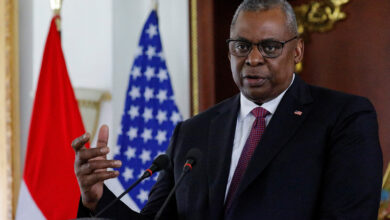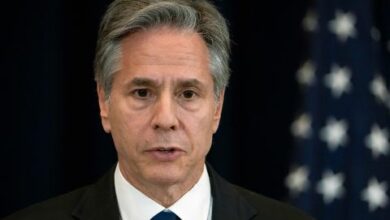Over a year ago, when US President Barack Obama addressed the Muslim world from Cairo, the response from the region was generally optimistic. Many appreciated the American president’s gesture of respect towards Islam, as well as his recognition of the injustice done to the Palestinian people. Hope existed that he would show a markedly different approach to resolving the Israeli-Palestinian conflict.
The disappointment that followed was not just the natural lapsing of a honeymoon, but also a reflection of the Obama administration’s failure to follow through on its promises. While the postponement of the closure of Guantanamo Bay and a drawn-out exit from Iraq were undoubtedly a factor, it was on the Palestinian issue that the disillusionment was most bitterly felt, particularly after the administration softened its stance on Israel’s settlements. This adjustment of attitudes was reflected in the recent Zogby poll, which showed that “hopeful” sentiment about US policy in the Middle East dropped from 51 percent in 2009 to 16 percent in 2010, with a large majority–63 percent, rather than 15 percent in 2009–of respondents feeling “discouraged” by Obama’s tenure.
This is bad news for the administration, considering Obama had made America’s public diplomacy and its image in the Muslim world an American strategic interest its own right. This logic, adopted by Bush and Obama alike, posited that it was essential to convince the Muslim world that the “war on terror” was not a “war on Islam”–which would be falling into the trap set by al-Qaeda and other fundamentalists who seek to ignite civilisational wars. Some of that thinking, of course, was flawed: even if they don’t like US policies, the vast majority of Muslims find the vision of perpetual war endorsed by al-Qaeda and its ilk far more abhorrent. It has never been an either/or choice between America and millennial fundamentalism.
But, nonetheless, the policy of strategic engagement with the Muslim world did serve a wider purpose: to reassure Muslims that they were not being singled out and to convince them that no great war between Islam and the West–with all its connotations for global stability and the welfare of minorities on both sides–was being waged. This message, thus far, has been getting through despite the (partly manufactured) outrage over the Danish cartoons and other unfortunate affairs.
But Obama may have a bigger problem, one for which he and his predecessor had not planned. It seems they have yet to convince a substantial part of the American population that Islam is not in itself suspicious. The ongoing controversy over the Cordoba House, a Muslim cultural complex two blocks away from the former site of the World Trade Centre, has taken on proportions that beggar belief. Prominent politicians such as Newt Gingrich (as well as much of his Republican party) are comparing the project to “putting a Nazi sign next to a Holocaust museum” and have termed it a form of “Muslim triumphalism.”
Part of this is populist posturing ahead of midterm elections in a few months. Another part of it is agitation by right-wing activists such as Stop the Islamisation of America (which describes itself, bizarrely, as a “human rights organisation”), or even groups such as the Anti-Defamation League whose relentless, un-nuanced support for Israel has moved them to take a position that can only be described as Islamophobic. And some are just old-fashioned racists complaining that the Cordoba House will take up a full 15-story building and who are vexed that “uppity Muslims” are moving into the neighbourhood. But all of these must be tapping into a very real sense of unease about Islam.
The fact remains that beyond the radical fringe there appears to be a substantial number of ordinary Americans who see the Cordoba House project as somehow inappropriate or insensitive. This is the case even if they have no hostile feelings towards Muslims and insist on their commitment to America’s long tradition of freedom of worship. No matter how you look at it, this suggests that reservations about Islam have settled into many hearts in the aftermath of the 9/11 attacks. Two administrations’ worth of speeches about Islam not being the enemy–perhaps too focused on convincing those abroad rather than those at home–has not eased this feeling.
This is not a uniquely American sentiment. In the past two years, we have seen the absurd ban on minarets in Switzerland and a bewildering discourse on national identity in France. It may be that the West is having its own crisis in accepting its Muslim minority populations. Though much of the Muslim world showed lamentable leadership over the Danish cartoon crisis as well as issues of freedom of worship, it is of little comfort that the West is not doing much better.
Issandr El Amrani is a writer on Middle Eastern affairs. He blogs at www.arabist.net. His column appears every Tuesday.




